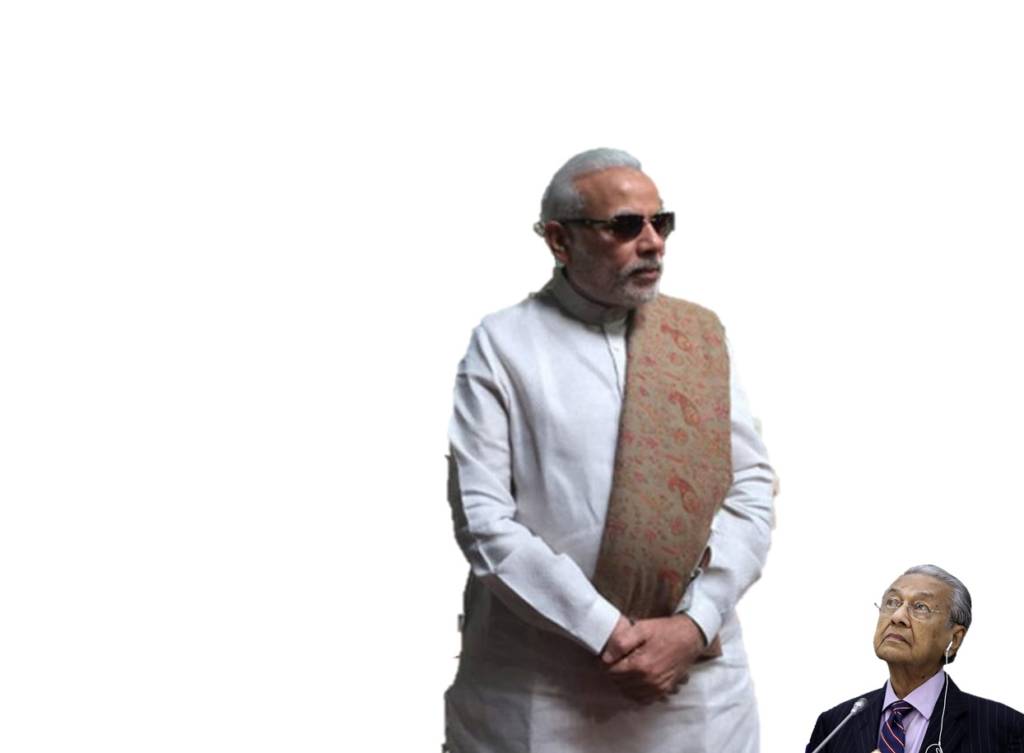In a bid to send a strong signal of its displeasure to Malaysian authorities, the Modi-government, angered by Malaysian Prime Minister Mahathir Bin Mohamad’s speech toeing the Pak line on Kashmir last month at the United Nations General Assembly, is mulling restricting imports of some products from Malaysia including palm oil, according to government and industry sources.
“Now, despite the UN resolution on Jammu and Kashmir, the country has been invaded and occupied,” the Malaysian leader had said in his address to the 74th UNGA essentially toeing the line of radical elements operating in the region and joining in the meek attempts of the Pakistani administration to churn dissension around legislative developments in Jammu, Kashmir and Ladakh. In addition to tensions around Kashmir, there has also been friction between India and Malaysia over Islamic preacher Zakir Naik, whom Indian authorities want extradited from Malaysia. Mohamad by his sudden vile anti-India rhetoric had invited a firm Indian response and it seems like he is about to be served the sucker-punch.
Palm oil accounts for nearly two-thirds of India’s total edible oil imports. India buys more than 9 million tonnes of palm oil annually, mainly from Indonesia and Malaysia. About 96-98% of palm oil consumed by India is imported.
The Modi government had last month imposed an additional 5 percent safeguard duty on imports of refined palm oil from Malaysia. India had raised the tax on refined palm oil from Malaysia to 50 percent from 45 percent to curb imports so as to boost domestic output and local refining.
Imports from Malaysia had still skyrocketed from 6,26,362 Metric Tonnes (MT) in 2016-17 to 25,96,225 MT in Jan-June, 2019 (on annualised basis), showing an increase of whopping 314 percent whereas the imports from other countries declined from 23,15,292 MT in 2016-17 to 7,25,210 MT in Jan-June, 2019.
Restricting imports from Malaysia would not create a shortage of edible oils in India either as Indonesia is eager to sell more and more palm oil and India could also increase imports of soy oil from Argentina and sunflower oil from Ukraine to offset any drop in palm oil shipments. This approach could devastate Malaysia’s palm oil industry.
Not even a third of palm oil gets directly used in Indian home kitchens. The bulk of it is consumed by the food industry for everything from mithais, namkeens, bread and biscuits, to noodles and quick-service restaurants. It is the cheapest oil and amenable to deep as well as multiple frying. Hydrogenated vegetable oil (vanaspati), too, is entirely based on palm oil.
The Indian government is also planning some restrictions on imports from Turkey, one of the government sources said, as Ankara has repeatedly issued diabolical statements on Kashmir, an issue that India well and truly considers an internal matter.
The pro-Pakistani comments by Malaysian Prime Minister Mahathir Bin Mohamad are surely not in line to keep the relation between the two nations cordial and going by the reports it certainly has not gone down well with the government. Consequently, Malaysia is not only poised to be economically impacted but might also have to pay a higher price for toeing the line of radical terrorists.
It has been proven that PM Modi is a hard-taskmaster and he likes giving it back to the opposition and whosoever tries to malign India and its image through fake speech and rhetoric must pay the price and unlike previous Indian regimes who used to sit back meekly, Narendra Modi does not lack the spine to take any substantial action.
